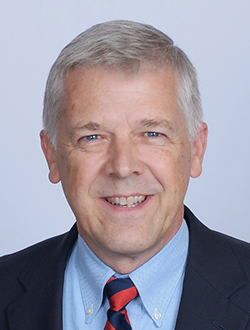Next Steps for Trustworthy Machine Learning
ABSTRACT
The aerospace industry is investigating the use of machine learning (ML) in new products to realize increased automation, autonomous operations, computational efficiency, and new market opportunities. In response to this growing demand, the community is actively developing guidelines and standards for fielding trustworthy ML-enabled avionics systems for aircraft. This talk will review the main challenges in the design assurance of safety-critical ML, such as quality verification of datasets, definition of operational scenarios, and demonstration of absence of unintended behaviors in ML models. We describe new approaches that are being developed to address these challenges and how they are being applied in a variety of aircraft systems. We show how these approaches are shaping the emerging certification guidance, regulatory expectations, and how this impacts the timeline for deployment of ML-based systems. Finally, we anticipate how neuro-symbolic approaches to ML design can support new safety- and mission-critical systems for civil and military aircraft.
Author
 Darren Cofer is a Principal Fellow at Collins Aerospace. He earned his PhD in Electrical and Computer Engineering from The University of Texas at Austin. His area of expertise is developing and applying advanced analysis methods and tools for verification and certification of high-integrity systems. His background includes work with formal methods for system and software analysis, the design of real-time embedded systems for safety-critical applications, and the development of nuclear propulsion systems in the U.S. Navy.
Darren Cofer is a Principal Fellow at Collins Aerospace. He earned his PhD in Electrical and Computer Engineering from The University of Texas at Austin. His area of expertise is developing and applying advanced analysis methods and tools for verification and certification of high-integrity systems. His background includes work with formal methods for system and software analysis, the design of real-time embedded systems for safety-critical applications, and the development of nuclear propulsion systems in the U.S. Navy.
Dr. Cofer has served as principal investigator on government-sponsored research programs with NASA, NSA, AFRL, and DARPA, developing and using formal methods for verification of safety and security properties. He served on RTCA committee SC-205 developing new certification guidance for airborne software (DO-178C) and was one of the developers of the Formal Methods Supplement (DO-333). He is a member of SAE committee G-34 for Artificial Intelligence in Aviation, the Aerospace Control and Guidance Systems Committee (ACGSC), and a senior member of the IEEE.

View Slides (You must register and request HCSS Community Membership to download the slides.)